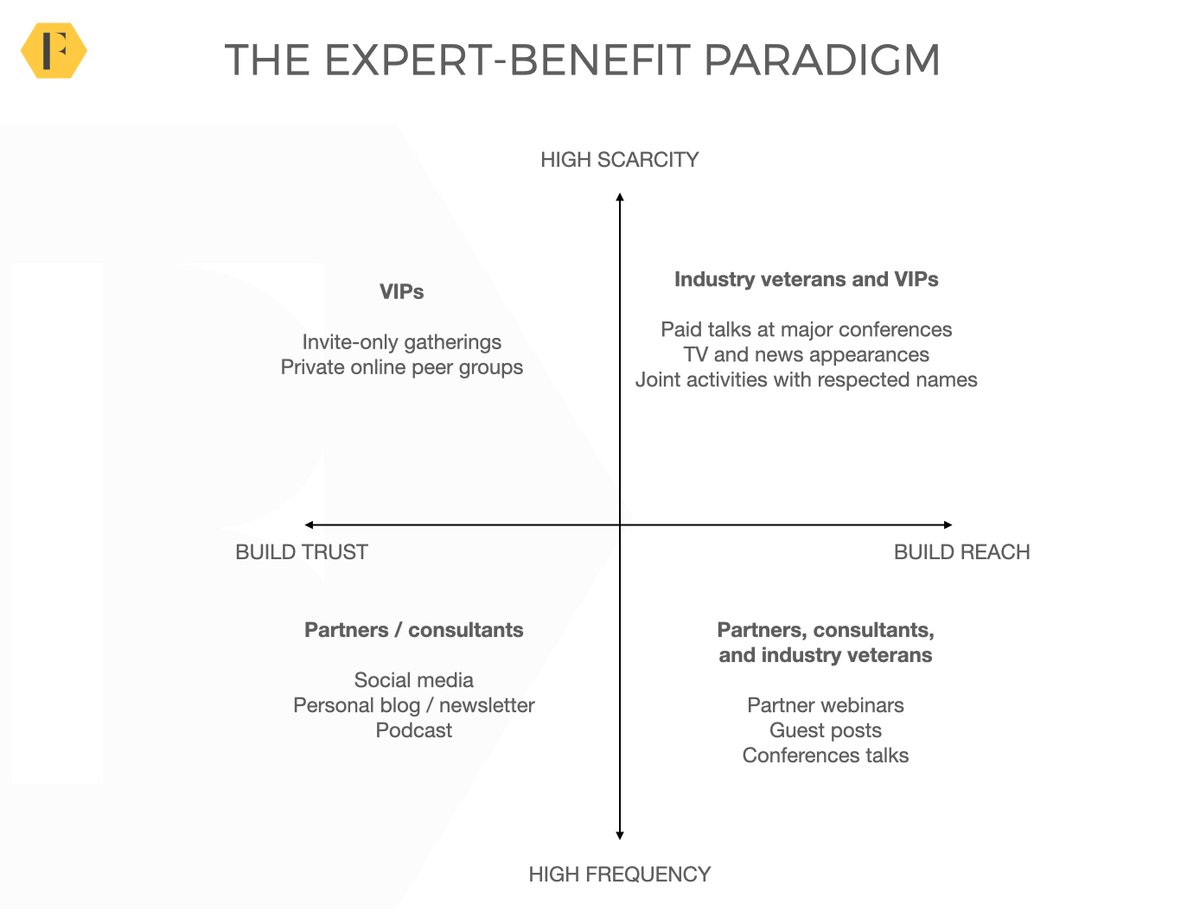
Have you noticed experts don't tend to contribute great content to brand communities anymore?
The strategies we're using to engage experts in communities are often ridiculously out of date.
This leads to a lot of empty knowledge bases/galleries etc...
Let's fix this..
#CMGR
The strategies we're using to engage experts in communities are often ridiculously out of date.
This leads to a lot of empty knowledge bases/galleries etc...
Let's fix this..
#CMGR
1 - Identify who the experts are.
A lot of strategies seem to regard 'experts' as some homogenous group. In our experience, three groups contribute most knowledge
1) Partners/consultants
2) Company veterans
3) Senior-execs / VIPs
A lot of strategies seem to regard 'experts' as some homogenous group. In our experience, three groups contribute most knowledge
1) Partners/consultants
2) Company veterans
3) Senior-execs / VIPs
2 - Offer them what they really want.
1) Partners/consultants - want to build an audience, reputation, and relationships.
2) Company veterans - want external recognition to build internal support.
3) VIPs - want respect of their peers.
1) Partners/consultants - want to build an audience, reputation, and relationships.
2) Company veterans - want external recognition to build internal support.
3) VIPs - want respect of their peers.

3 - Focus on reach and trust.
Different tactics appeal to different groups. Most of the time, you need to build people build reach with the many or build trust/respect with a select few.
You can see there are different tactics suitable for that.
Different tactics appeal to different groups. Most of the time, you need to build people build reach with the many or build trust/respect with a select few.
You can see there are different tactics suitable for that.

4 - Select the right channels.
When was the last time you created a detailed guide and shared it as a forum-style post to quickly vanish?
Experts use the channels which best suit them these days. You see this below. Select the right channel for the experts you want.

When was the last time you created a detailed guide and shared it as a forum-style post to quickly vanish?
Experts use the channels which best suit them these days. You see this below. Select the right channel for the experts you want.


5 - Make it worthwhile!
Most tactics which fail are on the wrong side of the 'Is it worth it?' line.
Increase the scarcity (prestige) or the reach and you can usually tip the balance in your favour.
To be fair, you can just pay people too. But that's rather costly.
Most tactics which fail are on the wrong side of the 'Is it worth it?' line.
Increase the scarcity (prestige) or the reach and you can usually tip the balance in your favour.
To be fair, you can just pay people too. But that's rather costly.

6 - Understand what each expert can best offer.
Partners/consultants can share experiences from working with many orgs.
Company veterans can share fantastic case studies from their work.
Senior folks can best share strategic views/opinions on industry.
Partners/consultants can share experiences from working with many orgs.
Company veterans can share fantastic case studies from their work.
Senior folks can best share strategic views/opinions on industry.

7 - Pull together an action plan.
Here's a simplified example - but you get the idea!
It should be clear to connect the goal > objective > Expert needed > key channel > and key benefit all together for everyone to read.
Here's a simplified example - but you get the idea!
It should be clear to connect the goal > objective > Expert needed > key channel > and key benefit all together for everyone to read.

8 - Discover the tactics which have worked best for us.
You can find the rest of our favourite tactics, examples, and templates here: feverbee.com/expert-contrib….
Hope this helps.
You can find the rest of our favourite tactics, examples, and templates here: feverbee.com/expert-contrib….
Hope this helps.
• • •
Missing some Tweet in this thread? You can try to
force a refresh





